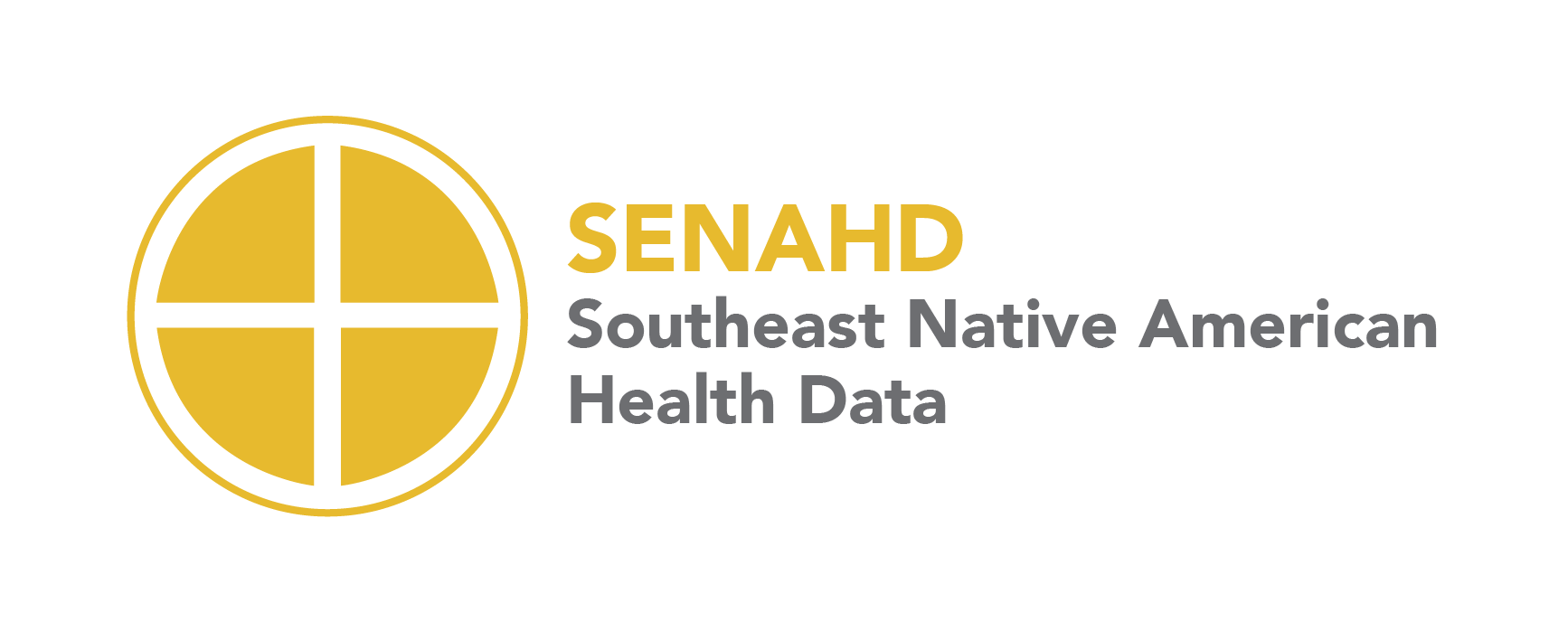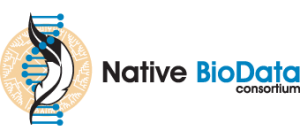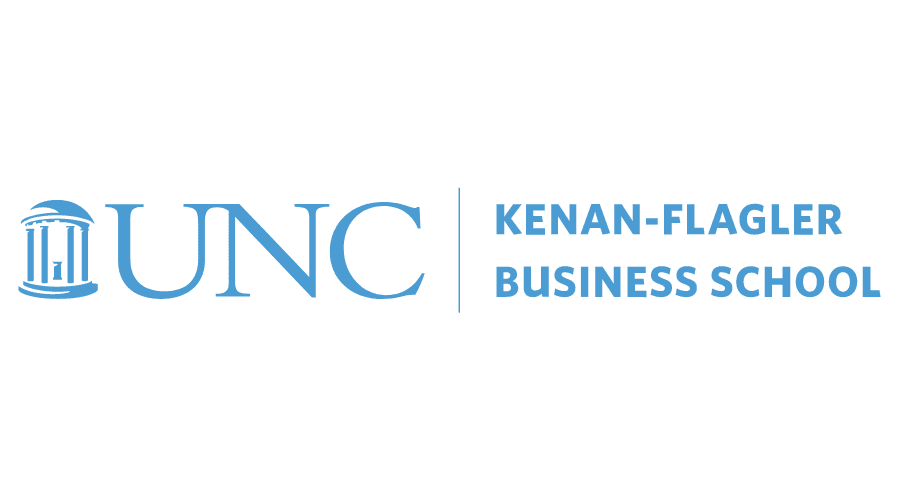SENAHD
Inaugural symposium:
Join leading Indigenous health leaders and scientists as they discuss the ethical use of Native genetic, microbiome, biological, and cultural data. A one-day virtual symposium featuring a renowned Indigenous keynote speaker, leading Native scientists and health experts, conversation with Tribal leaders, and a Science, Technology, Engineering, Art, and Math (STEAM) event for graduate, undergraduate and high school students. This is a Native designed program. Please support Indigenous research.
Can’t attend? Register. You will automatically receive the symposium recording!
You’ll learn:
- How a global movement toward data sovereignty is impacting health, science, ancient and ancestral social data and research
- Ethical, political, and economic issues surrounding Indigenous genomic and cultural data collection and use
- Best practices for community-engaged research
- Best practices for working with Southeast tribal communities within a cultural and political context
- Research needs and data sufficiency issues in Southeast Indian Country
Keynote Speaker:
Māui Hudson, BHSc, AIT, MHSc, AUT (Whakatōhea)
Associate Professor, Director, Te Kotahi Research Institute, University of Waikato, New Zealand
What does ‘Ethical Research’ look like? An Indigenous Perspective on Big Data & Precision Medicine 1:15 p.m.–1:55 p.m. EST (40 minutes)
Speakers and Schedule:
MORNING
Amy Locklear Hertel, JD, PhD, MSW (Lumbee and Coharie)
Executive Vice Provost, UNC Chapel Hill
Welcome and Offering 8:45 a.m. – 8:55 a.m. EST (10 minutes)
Debra Mathews, PhD, MA
Associate Professor, Department of Genetic Medicine; Assistant Director, Science Programs for the Berman Institute of Bioethics, Johns Hopkins University
(Gen)omic Data and Research: A Changing Ethical Landscape 9:00 a.m. – 9:20 a.m. EST (20 minutes)
Jada Lynn Brooks, PhD, MSPH, RN, FAAN (Lumbee)
Associate Professor and Ross Distinguished Term Scholar of Psychiatric-Mental Health Nursing, UNC Chapel Hill
Data Sufficiency and Research in Southeast Indian Country 9:25 a.m. – 9:45 a.m. EST (20 minutes)
Matthew Anderson, PhD (Eastern Cherokee descent)
Assistant Professor, Microbiology and Microbial Infection & Immunity, Principal Investigator, Anderson LabThe Ohio State University
Working with Non-Humans to Understand Indigenous Health 9:50 a.m. – 10:10 a.m. EST (20 minutes)
Danielle Hiraldo, PhD, MPA (Lumbee)
Tribal Outreach Specialist, Senior Researcher, University of Arizona
Policy Considerations for Researchers Working with Southeast Tribal Communities 10:15 a.m. – 10:35 a.m. EST (20 minutes)
Keolu Fox, PhD (Kanaka Maoli – Native Hawaiian)
Assistant Professor, Anthropology and Global Health Program, University of California San Diego
[Untitled] 10:40 a.m. – 11:00 a.m. EST (20 minutes)
Joseph Yracheta, DrPH (Pūrepecha–Mexican Indigenous)
Executive Director, Native BioData Consortium
Moderator: Morning speaker’s panel 11:05 a.m. – 11:50 EST (45 minutes)
NOON
STEAM Native Student Network
All Students Welcome – No Borders – Informal 12 p.m.–1 p.m. EST (1 hour)
Students, you must be registered for the symposium. Then just send us an email at senahd@unc.edu and we’ll send you an entry link to the STEAM network room!
AFTERNOON
KEYNOTE
Māui Hudson, BHSc, AIT, MHSc, AUT (Whakatōhea)
Associate Professor, Director, Te Kotahi Research Institute, University of Waikato, New Zealand
What does ‘Ethical Research’ look like? An Indigenous Perspective on Big Data & Precision Medicine. 1:15 p.m.–1:55 p.m. EST (40 minutes)
TRIBAL CONVERSATION
Tribal leaders, community leaders, and allies talk about health and wellness needs at the land level. 2:00 p.m.–3:30 p.m. EST (1 1/2 hours)
Moderator:
Jada Lynn Brooks, PhD, MSPH, RN, FAAN (Lumbee)
Southeast Mother, daughter, community engaged health researcher, board member at Native BioData Consortium, professor at UNC Chapel Hill School of Nursing where she works to promote environmental health equity among American Indian women.
Ronny Bell, PhD, MS (Lumbee)
Native son, regional health leader, professor at Wake Forest School of Medicine, Associate Director of Community Outreach and Engagement, Director of the Office of Cancer Health Equity at the Wake Forest, and Chair of the North Carolina American Indian Health Board.
Qua Lynch Adkins, MPH (Haliwa-Saponi)
New mother, daughter of Native artist, powwow dancer, public health and community builder at NC Commission of Indian Affairs, Maya Angelou Center for Health Equity, NC American Indian Health Board, and currently UNC American Indian Center.
Lisa Lefler, PhD
Trailblazer, Cherokee scholar, medical anthropologist at Western Carolina University and director of the Culturally Based Native Health Program working with Native communities for alcohol and drug studies, American Indian fatherhood, and applied Indigenous knowledge.
Kerry Bird, MS (Sisseton-Wahpeton Oyate and Lumbee)
Son, partner, beloved community advocate who has spent his entire career working with Native Communities including the National Native American AIDS Prevention Center, Native Americans in Philanthropy and the North Carolina Commission of Indian Affairs,
Jeanne Millikin Bonds, MPA
Genuine and generous friend, descendent of abolitionists, Federal Reserve banker, former mayor, professor at UNC in Kenan-Flagler Business School and UNC Public Policy, heads Whole Community Health and works for equity in rural communities.
Organizers:
Southeast Native American Health Data (SENAHD) in collaboration with the Native BioData Consortium, the first 501(c)(3) nonprofit research institute led by Indigenous scientists and tribal members in the United States.

Purpose:
The purpose of the SENAHD initiative is to bring information and programming to Southeast tribal communities, researchers, and health professionals about the ethical use of Indigenous genetic, microbiome, biological, and cultural data.
UNC-Chapel Hill partners:
- UNC American Indian Center
- The Odum Institute for Research in Social Science
- Whole Community Health: Kenan-Flagler Business School and UNC Public Policy
Thank you to our sponsors!








